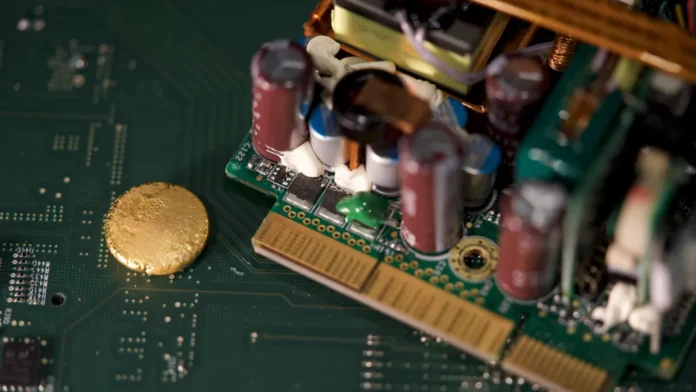Written By Lisa Murimi
The Royal Mint has embarked on a pioneering project to extract gold from electronic waste, marking a significant shift in its operations.
Located in Llantrisant, Wales, the new industrial plant is set to process 4,000 tonnes of e-waste annually, recovering valuable gold from discarded circuit boards.
The initiative, described as “urban mining” by Inga Doak, the Mint’s head of sustainability, aims to tackle the growing problem of e-waste, which the UN reports amounted to 62 million tonnes globally in 2022.
The process involves heating and dismantling old circuit boards, sorting out gold-laden components, and using a low-energy, recyclable chemical method to extract the gold.
The recovered gold will initially be used to craft jewellery, with plans to produce commemorative coins in the future. This method contrasts with traditional gold recovery processes, which are more energy-intensive and environmentally damaging.
The Royal Mint’s shift to e-waste processing not only helps manage the increasing volume of tech trash but also supports job retention as cash use declines.
The facility’s operations are expected to generate up to 450 kilograms of gold annually, valued at approximately £27 million, while also exploring the reuse of other materials from the e-waste.



















